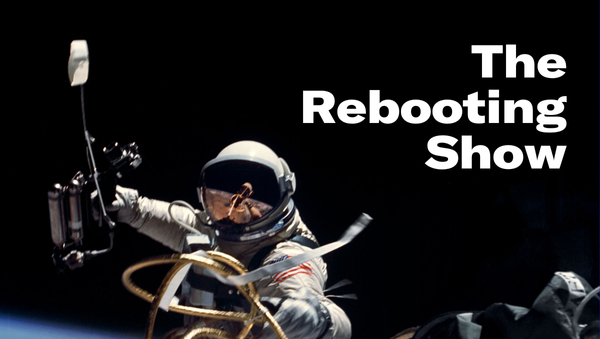6am’s playbook for sustainable local news
No politics, no crime
Thanks for reading this week. Quick reminder: Fill out this form if you’re interested in invites to future events from The Rebooting. I plan to start small with a dinner next month for publishers in New York City. This week:
- 6am City COO Ryan Heafy on its no politics, no crime approach to a local news product
- A new People vs Algorithms podcast on ephemeral brands and more
- Bloomberg’s ditching open programmatic as part of a reset of the digital advertising market

Unbundling local news
Building sustainable publishing businesses is a hard problem. Building sustainable local news businesses is the hardest of hard problems.
The collapse of classifieds advertising and powerful market positions in their local markets, along with high cost structures, has led to a collapse in the locals newspaper business. Digital media, for the most part, hasn’t filled the void. But there are glimmers of hope as dozens of efforts are underway to find workable local news models, using both for-profit and nonprofit approaches.
6am City is turning to the newsletter to build out a network of 25 local news publications it says have 1 million cumulative subscribers and an open rate around 50%. After starting in Greenville, South Carolina, in 2016, 6am has expanded to markets like Madison, Wisconsin; Austin; Portland; and Indianapolis.
The 6am formula is to keep new publications’ costs under $250,000, staff them with two-or three editorial staffers and four total employees, mostly making money from ads, both local and regional. It looks for markets based on a criteria developed, including income and education levels, inflows and outflows of residents, charitable giving and retail activity. It aims to get to profitability (and healthy 50% profit margins) in a market in two to three years.
6am City is an interesting beast. It is one of several efforts, such as Axios Local, that are taking different approaches to filling the gap in local “news.” I use the quotation marks because news is a broad category, although we tend to go to hard-hitting investigative journalism when thinking of news. But from an audience perspective, learning about the local pumpkin festival has always been a part of the news. There’s similarities to how The Athletic unbundling sports coverage of local news. The 6am City approach unbundles the local news product to focus more on the softer side of local news.
Ryan Heafy, co-founder and COO of 6am City, spoke with me on this week’s episode of The Rebooting Show. Some highlights:
No politics, no crime. 6am City has skipped staples of local news, politics and crime, determining that this kind of coverage is what has alienated advertisers from local news sites. Instead, 6am sites tend to focus on lighter fare like local events and things to do. “It’s the easiest slam dunk with any advertiser: We can guarantee you're not going to be between a sexual assault, a homicide and a car accident.”
Scale matters. 6am City started with two markets but built the company specifically to scale to many markets in order to lower the cost of the infrastructure to make the publications profitable more quickly – and sustainably. “By repositioning that and centralizing everything, it's allowed us to bring on and empower the editorial staff.” Heafy believes at least another 100 markets fit the 6am model.
Clustering markets. 6am City operates across the country, but it tries to cluster publications so it can benefit from regional ad buys. Many 6am publications are in the Southeast, Midwest and West. (In the Northeast, 6am Boston is the only publication.)
Check out the full episode on Apple Podcasts and Spotify. Thanks to Jay Sparks from PodHelp.us for producing the episode. If you’re thinking of doing a podcast, get in touch with Jay.

Ephemeral brands
In the other podcast I’m doing, People vs Algorithms, Troy Young and I discuss everything from the fate of Twitter under Elon Musk, as legally required by every podcast; how you build brands in a media environment dictated by flow; and why in many ways we’re all cheaters to a degree as we augment our abilities with the help of technology.
One topic we delved into is the idea of ephemeral brands. I’ve thought more about how digital media has mostly failed at creating lasting brands. The ephemeral nature of the web, the speed it moves, works against building the kind of long-lasting institutional brands developed in the analog era. Perhaps some digital brands will prove to be the exception to the rule – I will not be around for the BuzzFeed Centennial celebration in either case – but this could be the era of ephemeral brands that burn bright and fade out.
You can find the People vs Algorithms podcast on Apple Podcasts and Spotify. Would love hear feedback on the show and suggestions: bmorrissey@gmail.com.

Recommendations
The hard part of building a media business is you need to solve for two different challenges: 1. Creating an editorial product people want and value; 2. Building a business around that. Axios CEO Jim VandeHei spoke on a recent Press-Gazette Future of Media podcast about the need for nailing this “synchronicity,” and how too many publications of the previous era did one or the other well instead of both.
An interesting suggestion for Substack: An app store. Venture capitalist Hunter Walk believes Substack should follow the lead of Shopify by becoming a true platform on which other providers can solve for “ecosystem” needs of publishers on the platform, from advanced analytics and segmentation to monetization tools like commerce and ad networks. I’ve long thought Shopify is the closest analogy to what Substack could become. An open platform approach would allow for more diversity in business models, as well as faster product development. The risk is people developing for Substack only to see Substack decided their feature is a “core feature” and develop its own.
The reviews of the documentary Coinbase’s founder commissioned about himself and his company are in, and some unsurprisingly find it less than inspiring. Charlie Warzel finds the documentary “both profoundly uninteresting and more than a little uncanny in a way that obvious propaganda tends to be.” This is unsurprising. Most office work is hardly the stuff of gripping drama, unless it’s wrapped in scandal. A better approach for Coinbase would be a show-don’t-tell strategy in which it pours the resources and energy put into hagiography and diverts it into educating regular people on why crypto is meaningful and not another passing get-rich-quick speculative scam.
Bloomberg News is the latest major publisher to ditch open programmatic ads. The changes to the digital ad market are still unsettled. Lots of supposedly smart ad tech people pretend to have everything figured out on Twitter, but the truth is the kind of disruption occurring from regulations and new data collection and targeting restrictions will have consequences beyond the obvious. One hopeful possibility hinted at in Mark Stenberg’s story: The changed economics from some forms of targeted digital ads will alter the tradeoffs publishers are willing to make to user experience. Of course, Bloomberg can make this tradeoff far more easily when open programmatic is just 5% of its ad business.
Everything moves in cycles. We could be in store for a round of “why I’m returning to Substack” posts from writers who decamped to piece together their own tech platform. I don’t want to turn this newsletter into a newsletter about newsletter software, but I would expect many one-and two-person outfits will recognize the advantage of not worrying about tech and product. Being a publisher means fulfilling several basic functions (content, product, marketing, design, monetization, customer/client service) and subtracting some is needed to avoid being stretched too thin – or end up developing an inefficient infrastructure.

Thanks for reading. Send me a note with feedback: bmorrissey@gmail.com
For sponsorship opportunities, check out The Rebooting sales kit and get in touch.




